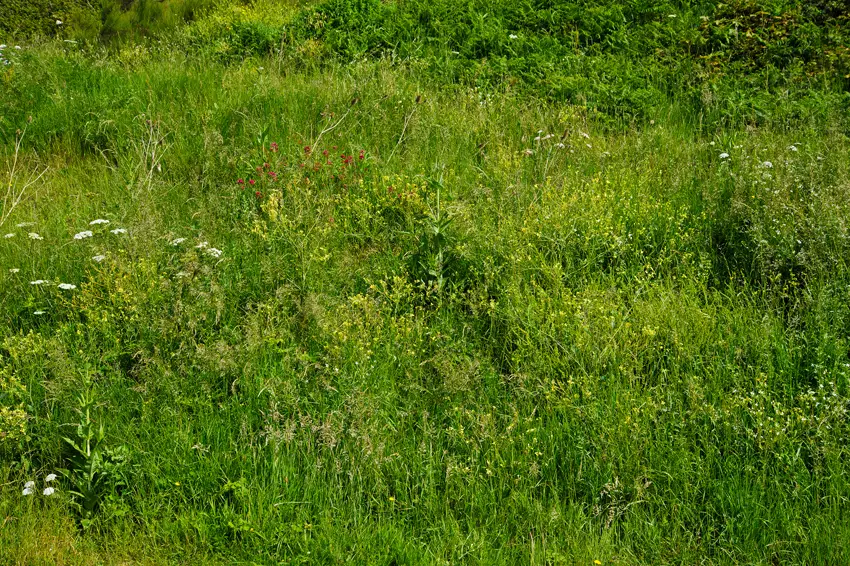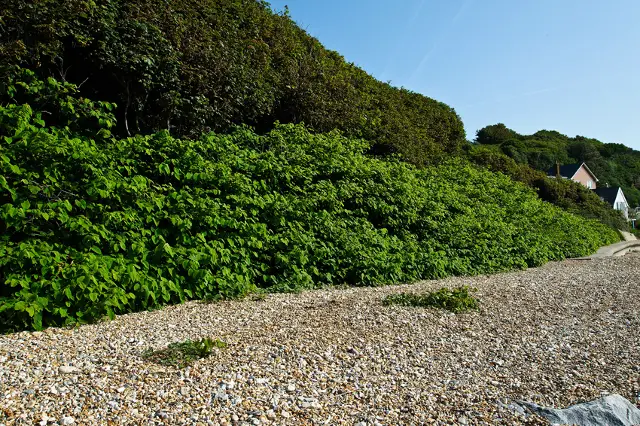We always welcome a Letter to the Editor to share with our readers. If you have something you’d like to share, get in touch. This from Gordon Payne. Ed
The photo above shows a large bank of Japanese knotweed. It was photographed in the morning of Thursday 19th June at Monk’s Bay, Bonchurch. You will see that it is spreading forward onto the shingle beach, as well as up and along the bank.
This is a highly invasive plant which will cause structural damage and smother all competing species. As an illustration of how ruthlessly it smothers, the picture below, taken on the same day, just 50 yards away in Monk’s Bay. This shows the wonderful diversity of wildlife that characterises this beautiful Island.
Click on the image to see larger version

This does not just affect flowers and shrubs, although these are important in themselves. A wide range of plants means a wide range of insects, grubs, birds, rodents and other mammals, all the way up the food chain. The entire eco-system relies on this bio-diversity, including the unique Glanville Fritillary and the Adonis Blue butterflies that exist along this shore.
Could reduce the value of your house
All this will be lost if this imported weed is allowed to flourish on the Island. Householders and landowners can help by destroying it from their fields and gardens.
Be aware that the presence of Japanese knotweed on or near your property can dramatically reduce the value of your house, or even make it unsellable. Insurance companies will not pay for structural damage caused by Japanese knotweed, and some will refuse to insure affected properties. This makes it unmortgageable.
You could face civil action
If you allow the plant to affect neighbouring properties, you will be liable to civil action. This is a problem that really does call for co-operation.
The Environment Agency produces a useful and informative “Knotweed Codes of Practice” that can be found on their website.
Who is responsible?
I do not know who is responsible for Monk’s Bay.
If it is public land, then the Isle of Wight Council must act now, while growth is vigorous and the weed is amenable to treatment.
Delay could prove very expensive, for the environment, for the Council and for local residents.





